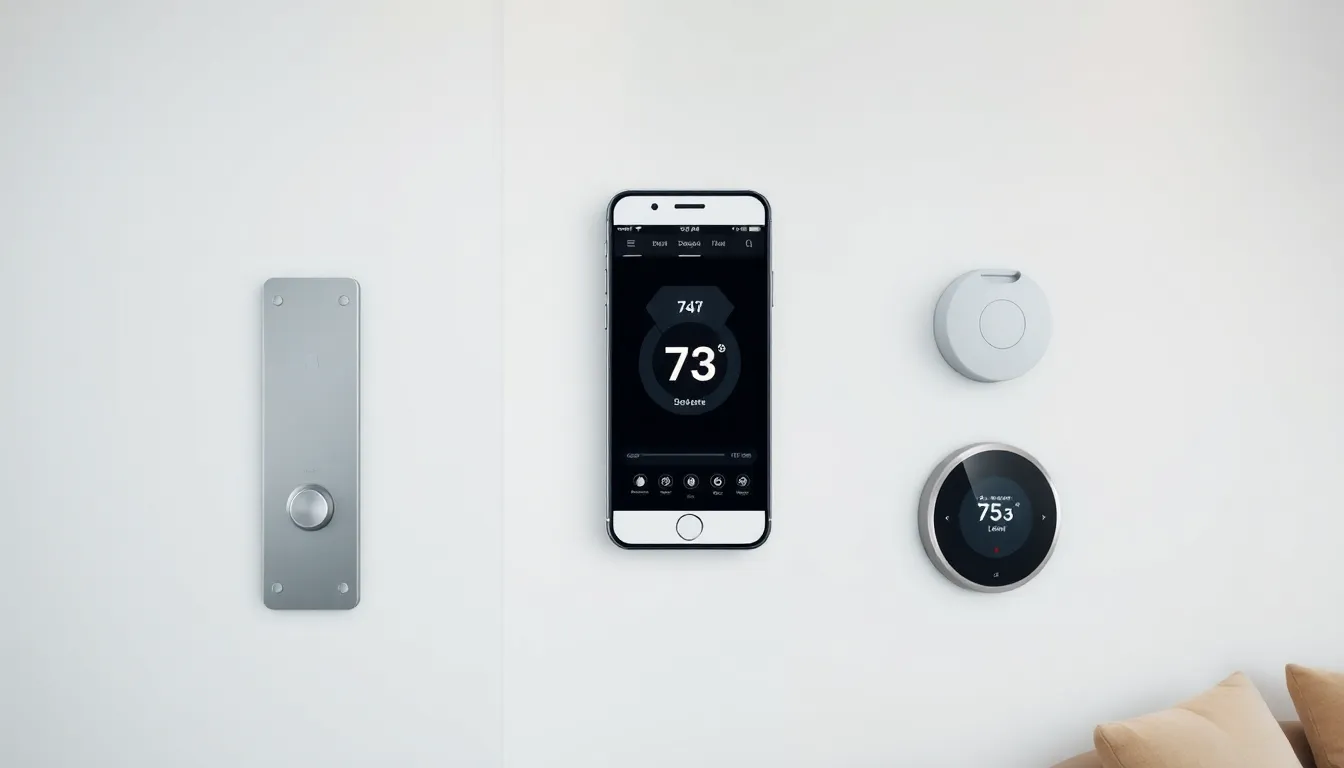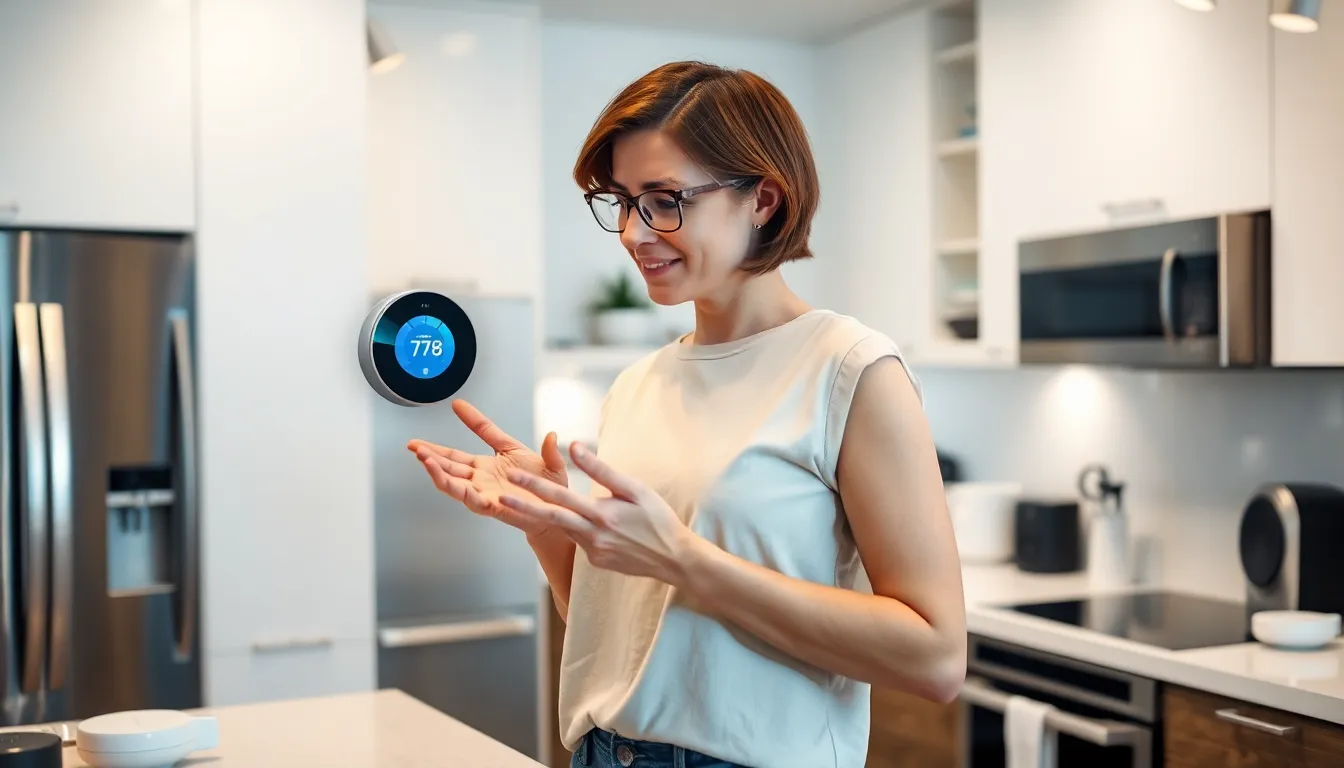The Internet of Things (IoT) isn’t just a buzzword; it’s a revolution that’s transforming how we live and work. Imagine your refrigerator texting you when you’re out of milk or your thermostat adjusting itself based on your mood—sounds like sci-fi, right? But these are just the tip of the iceberg in the world of IoT projects.
From smart homes to connected cars, the possibilities are endless, and the benefits are too good to ignore. Whether you’re a tech enthusiast, a budding entrepreneur, or just someone who loves gadgets, diving into IoT projects can be both fun and rewarding. So grab your coffee, roll up your sleeves, and let’s explore how you can turn everyday objects into smart devices that make life easier, more efficient, and a little more entertaining.
Table of Contents
ToggleOverview of Internet of Things Projects
Internet of Things projects encompass a diverse range of applications, integrating smart devices into various aspects of life. These projects frequently focus on automation, data collection, and real-time processing, creating interconnected systems that enhance efficiency. Smart home applications represent a popular area, offering devices like smart locks, lighting systems, and thermostats that improve convenience and security.
Industries leverage IoT projects for specific benefits, such as agriculture utilizing sensors for monitoring soil conditions, which optimizes resource usage. Healthcare also adopts IoT solutions, utilizing wearable devices that track vital signs, leading to improved patient monitoring and intervention. Transportation networks implement IoT technologies too, enhancing fleet management and traffic monitoring.
Challenges persist within IoT projects, including security and interoperability issues. Developers continuously strive to create robust solutions that safeguard user data while ensuring devices can easily communicate. Many IoT projects utilize cloud platforms for data processing and storage, enabling scalability and accessibility.
Emerging trends in IoT projects highlight the integration of artificial intelligence and machine learning. These technologies enhance automation, allowing devices to learn from user behavior and adapt accordingly. Sustainability becomes a focus, with smart devices designed to reduce energy consumption and minimize waste.
Each project contributes uniquely to the growing landscape of the Internet of Things, representing endless possibilities for innovation. As more individuals and businesses embrace IoT solutions, the potential for transformative benefits continues to expand, reshaping daily routines and operational processes.
Types of Internet of Things Projects

Exploring the different types of Internet of Things projects reveals exciting opportunities for innovation and efficiency across various fields.
Home Automation Projects
Home automation projects enhance daily living through the integration of smart devices. These include smart locks that provide keyless entry, automated lighting systems that adjust based on occupancy, and intelligent thermostats that optimize energy use. Each device connects to a centralized hub, allowing users to control everything from temperature to security via smartphones. Innovations in voice control technology further enrich user experience, making daily tasks seamless and efficient.
Industrial IoT Projects
Industrial IoT projects transform manufacturing and supply chain management through data-driven insights. Sensors monitor equipment performance in real time, predicting maintenance needs to prevent costly downtimes. Fleet management systems utilize GPS tracking, optimizing routes and enhancing fuel efficiency. Data analytics platforms process vast amounts of information, enabling businesses to improve operational efficiency and reduce waste, fostering a more sustainable production environment.
Smart Agriculture Projects
Smart agriculture projects revolutionize farming with technology that boosts productivity. Precision farming employs sensors to measure soil moisture and nutrient levels, ensuring optimal crop conditions. Drones conduct aerial surveys, assessing crop health and identifying issues early. Additionally, automated irrigation systems use real-time data to conserve water, delivering it only when necessary, yielding higher quality produce while minimizing resources.
Benefits of Implementing Internet of Things Projects
Implementing Internet of Things projects brings multiple advantages. Organizations experience streamlined processes and improved decision-making efficiency.
Improved Efficiency
Efficiency ratings soar with IoT implementations. Automation reduces manual tasks and minimizes human error. Smart devices communicate seamlessly, ensuring timely operations across various applications. For example, smart thermostats automatically adjust temperatures to maintain comfort while lowering energy costs. Equipment monitoring in industries showcases real-time performance data, allowing for predictive maintenance. Such proactive measures cut downtime and enhance productivity significantly. Each of these improvements contributes to more effective resource management.
Enhanced Data Collection
Data collection becomes more sophisticated with IoT technology. Devices gather vast amounts of information continuously, providing businesses with actionable insights. Wearable sensors in healthcare track patient vitals in real time, aiding in timely interventions. Agricultural sensors monitor soil conditions, optimizing crop yields. Smart home devices collect usage patterns, enhancing user experiences. Utilizing cloud platforms further facilitates storage and processing of this data, enabling deeper analysis. Implementing these projects harnesses data potential, transforming raw information into strategic opportunities.
Challenges in Internet of Things Projects
Internet of Things (IoT) projects face several significant challenges that developers must address to ensure their success.
Security Concerns
Security remains a paramount issue in IoT projects. Devices often collect and transmit sensitive data, making them targets for cyberattacks. A survey by Cybersecurity Insiders reported that 65% of organizations recognize IoT security as a top priority. Many IoT devices lack robust security features, increasing vulnerability to unauthorized access. Moreover, once compromised, hackers can manipulate devices or harvest personal information without detection. Consequently, developers must implement strong encryption and regular updates to safeguard user data and maintain trust.
Integration Issues
Integration between diverse devices poses another challenge. With countless manufacturers producing various IoT devices, achieving seamless interoperability can prove difficult. Technical standards often vary, creating incompatibility issues that hinder device communication. A report from Gartner indicates that 30% of IoT projects fail due to integration problems. Further complicating matters, existing IT infrastructure may require substantial modifications to accommodate new IoT technologies. Therefore, prioritizing compatible systems and standardized protocols is essential for maximizing efficiency and ensuring smooth operation across platforms.
Future Trends in Internet of Things Projects
In the coming years, significant developments in Internet of Things (IoT) projects will shape everyday interactions. Smart cities, utilizing IoT technologies, will enhance urban living through automated traffic control and intelligent waste management systems. These innovations aim to improve city efficiency and sustainability.
Another trend focuses on enhanced security for smart devices. With increasing concerns over cyber threats, developers prioritize robust security measures. Strong encryption and regular software updates will become standard practices, ensuring user data remains protected.
Edge computing is gaining traction as it reduces latency and increases data processing efficiency. By processing data closer to where it’s generated, this approach enhances the responsiveness of IoT applications. Real-time analytics will empower industries to make instantaneous decisions, particularly in manufacturing and healthcare.
Healthcare innovations will feature prominently as IoT devices monitor patient vitals and deliver critical data in real-time. Wearable devices provide healthcare professionals with continuous updates on patients’ conditions, allowing for timely interventions and improved outcomes. Telemedicine, powered by IoT, will expand access to healthcare services.
Agricultural projects will integrate IoT for smarter farming practices. Precision agriculture techniques will utilize soil sensors and drones to automate irrigation and monitor crop health. These advancements will lead to reduced resource consumption and higher yields.
Sustainable practices are increasingly integrated within IoT projects. Energy management systems will optimize energy usage across homes and businesses, lowering costs and environmental impact. As smart grids evolve, they’ll facilitate seamless energy distribution and utilization.
Smart home technology continues to evolve, integrating AI for enhanced user experiences. Virtual assistants will manage various IoT devices, automating tasks like adjusting lighting or monitoring security systems. This level of convenience will redefine home living.
The Internet of Things is reshaping how people interact with their environment and manage daily tasks. By embracing IoT projects, individuals and organizations can unlock unprecedented efficiencies and innovative solutions. The ongoing advancements in smart technology promise to enhance convenience and security while addressing critical challenges like data protection and interoperability.
As the landscape of IoT continues to evolve, the potential for smart cities, healthcare innovations, and sustainable practices grows. Engaging in these projects not only fosters creativity but also positions users at the forefront of technological progress. The future is bright for those willing to explore the endless possibilities that IoT offers.



